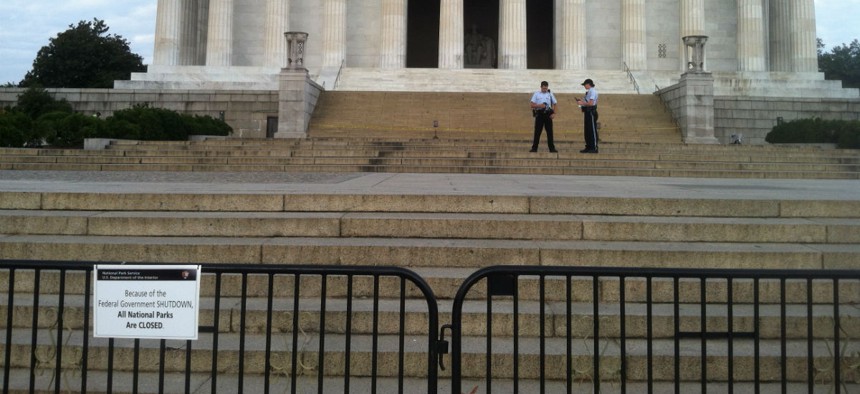
Flickr user National Parks Conservation Association
Judge to Hear Additional Arguments in Shutdown Lawsuits in May
The Justice Department is expected to file a motion to dismiss legal challenges against agencies’ ability to make employees work without pay during a lapse in appropriations in the coming days.
The threat of a government shutdown may be over for the time being, but a pair of lawsuits challenging the legality of agencies forcing federal employees to work without pay during a lapse in appropriations will proceed for now.
The National Treasury Employees Union, a group of five federal workers, and the National Air Traffic Controllers Association all sued the federal government last month, accusing officials of violating the Anti-Deficiency Act and the U.S. Constitution. Since the end of the shutdown, the air traffic controllers’ union dropped its lawsuit.
After a meeting to schedule briefs and oral arguments in the event that the government shut down again last week, NTEU attorney Paras Shah said he and his colleagues would continue to pursue the case even if a funding deal had been reached, citing the “capable of repetition, evading review” legal standard, which allows courts to hear cases when disputes have a short shelf life, but have a high probability of recurring.
At a status conference to determine next steps Friday, Shah confirmed that the plaintiffs would continue the lawsuit, likely on those grounds. For the Trump administration’s part, Justice Department attorney Daniel Schwei indicated he would file a motion to dismiss the lawsuit, arguing that with the government open, it is moot and subject to threshold and jurisdictional “obstacles.”
Shah fought unsuccessfully for an expedited schedule where U.S. District Judge Richard Leon would consider the Justice Department’s pending motion to dismiss with the merits of the union and five federal workers’ planned summary judgment request. Leon instead chose to separate the matters, and instructed attorneys to work together to come up with a filing schedule so that oral arguments on the motion to dismiss the suit could take place in “early May.”
Leon had previously suggested that the Trump administration faced a “steep uphill battle” in its defense of its interpretation of the Anti-Deficiency Act, particularly the Treasury Department’s decision to recall thousands of IRS employees last month to process tax return filings. And on Friday, although he stressed that he was not prejudging the case, he indicated that a decision on the merits of NTEU’s arguments could prove of value.
“It’s a novel case, with great potential concern and impact to the country,” Leon said. “I hope [a shutdown] never happens again, but it could and it’s a possibility, if not [in October] then under another administration. It could have precedential value if we ever get to the merits.”







